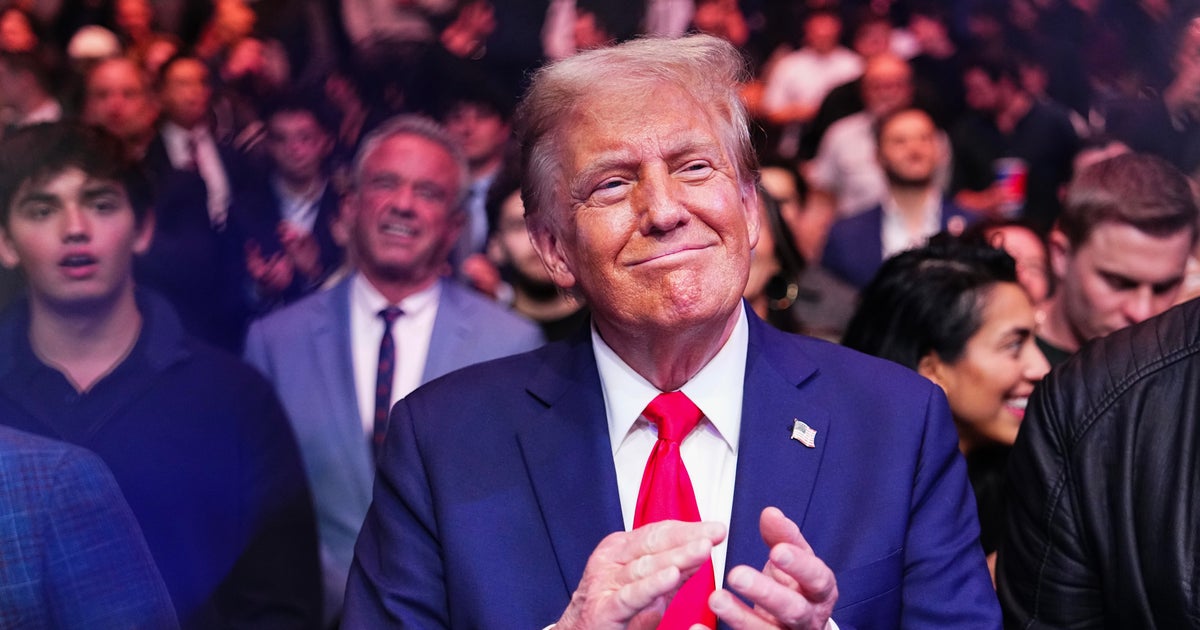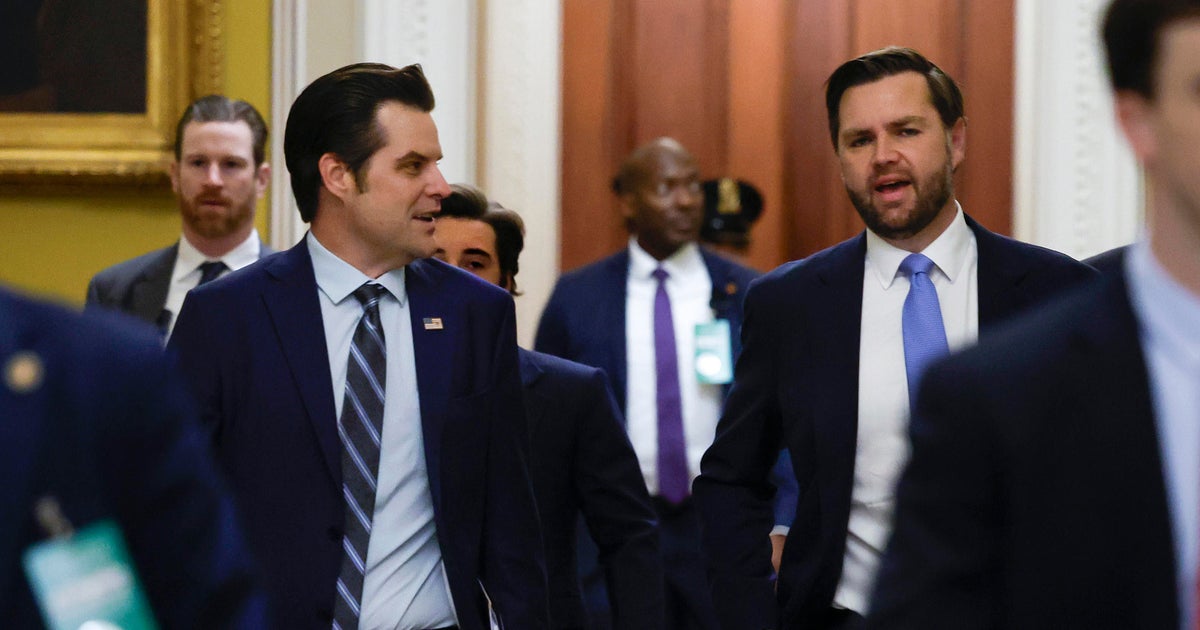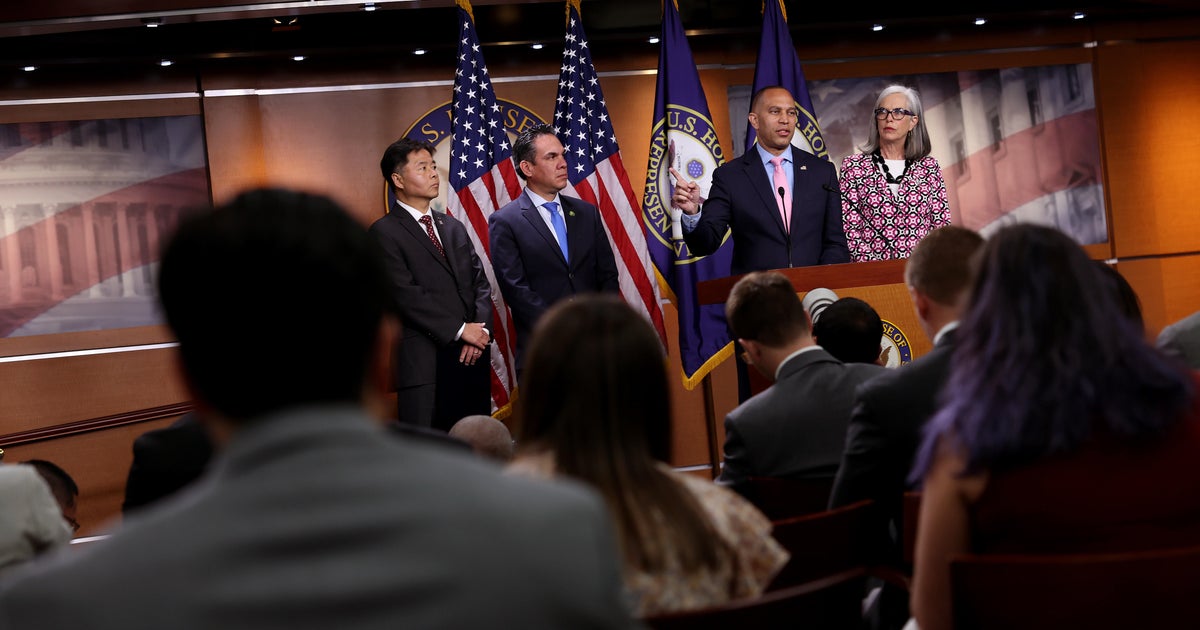Senate Intel report warns Russia's 2016 playbook offers roadmap for 2020 election meddling
Washington — A report released Tuesday by the Senate Intelligence Committee warns that the Kremlin-backed information warfare efforts to influence the 2016 presidential election could evolve, intensify and inspire other actors to make similar attempts in 2020.
The partially redacted, 85-page report is the product of two years of bipartisan, staff-led efforts, and offers a comprehensive look at Russian operatives' activity surrounding the 2016 elections.
Though President Trump continues to dismiss the idea that Russia tried to help his candidacy with its meddling, the panel's report reinforces previous conclusions by the intelligence community about Russian operations in 2016 — including that they were designed to harm Hillary Clinton's chances of success while boosting Mr. Trump's.
The Kremlin-linked Internet Research Agency's (IRA) social media activity "was overtly and almost invariably supportive of then-candidate Trump, and to the detriment of Secretary Clinton's campaign," the committee found.
It also confirmed that the highest echelons of the Russian government directed the IRA's efforts.
"Despite Moscow's denials, the direction and financial involvement of Russian oligarch Yevgeniy Prigozhin, as well as his close ties to high-level Russian government officials including President Vladimir Putin, point to significant Kremlin support, authorization, and direction of the IRA' s operations and goals," the report said.
"President Putin denies any knowledge of Prigozhin's trolling operation. The committee finds this denial to be false," it said. The section that follows is redacted.
Progozhin was among the 13 Russian nationals indicted by the U.S. government in July 2018.
While the report does not offer substantive details on ongoing interference efforts, it warns that new techniques — including micro-targeting, deepfakes, and improved automation — and targets like messaging platforms WhatsApp, Telegram and WeChat have caught the attention of unspecified influence operatives.
The report cites a 2018 analysis that noted Russian disinformation efforts in 2020 might focus on harvesting personal information, including emails, phone numbers and bank details. It also says that operatives could target sectors unrelated to elections to, for example, perpetrate financial fraud or stock-pumping schemes.
"The evolution and proliferation of the core influence techniques used by the IRA could jeopardize facets of American society that have yet to be attacked by influence operatives," the report said.
The committee consulted cybersecurity professionals, social media companies, intelligence and law enforcement agencies, and other experts to assemble the report — some of whose conclusions were forecast last December by two third-party analyses that were created using data provided to the committee by social media companies.
Social media operations in 2016, the committee concluded, were voluminous, fast and wide-ranging. Russian operatives flooded a variety of platforms, including Instagram, Reddit, Youtube, Tumblr and Pinterest. They also combined covert and overt operations to disseminate hacked materials using established propaganda channels like RT and Sputnik.
The report reinforces previous findings that Russian operatives most heavily exploited racial divisions in the United States. "By far, race and related issues were the preferred target of the information warfare campaign designed to divide the country in 2016," it said.
It also notes that the full scope of Russia's activity, which began as early as 2014 and persists today, remains unknown, as some of the activity may either not have been identified by the social media companies themselves, or wasn't shared with the committee.
"While Russia may have been the first to hone the modern disinformation tactics outlined in this report, other adversaries, including China, North Korea, and Iran, are following suit," said Republican committee Chairman Richard Burr. "Social media companies, federal agencies, law enforcement, and Congress must work together to address these challenges."
Democratic Vice Chairman Mark Warner of Virginia said there was "no doubt that bad actors will continue to try to weaponize the scale and reach of social media platforms to erode public confidence and foster chaos" in 2020. "[T]heir techniques will only get more sophisticated," Warner said in a release accompanying the report.
The committee makes a series of recommendations, including that social media companies share even more information with both the public and private sector and develop ways to notify users proactively if they are subjected to online disinformation. It also says Congress should consider whether "formalizing" information-sharing between law enforcement and social media companies would be an effective step.
It also calls on executive branch agencies within the Trump administration to draw attention to the threat.
"The committee recommends that the Executive Branch should, in the run up to the 2020 election, reinforce with the public the danger of attempted foreign interference in the 2020 election," the committee said. It added that "all Americans, and particularly those with a public platform, take on the responsibility of doing due diligence in their use of social media, so as to not give greater reach to those who seek to do our country harm."
Tuesday's report is the second in a series of final chapters the committee is expected to release. Its first installment, on election security, was made public in July. Future chapters are expected to focus on the Obama administration's response to Russia's activity and on counterintelligence concerns stemming from the Trump campaign's links to Moscow. It is unclear if the committee will release a final chapter on the 2017 Intelligence Community Assessment, as most of the information it would contain would be highly classified.



